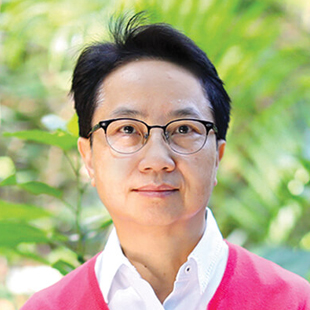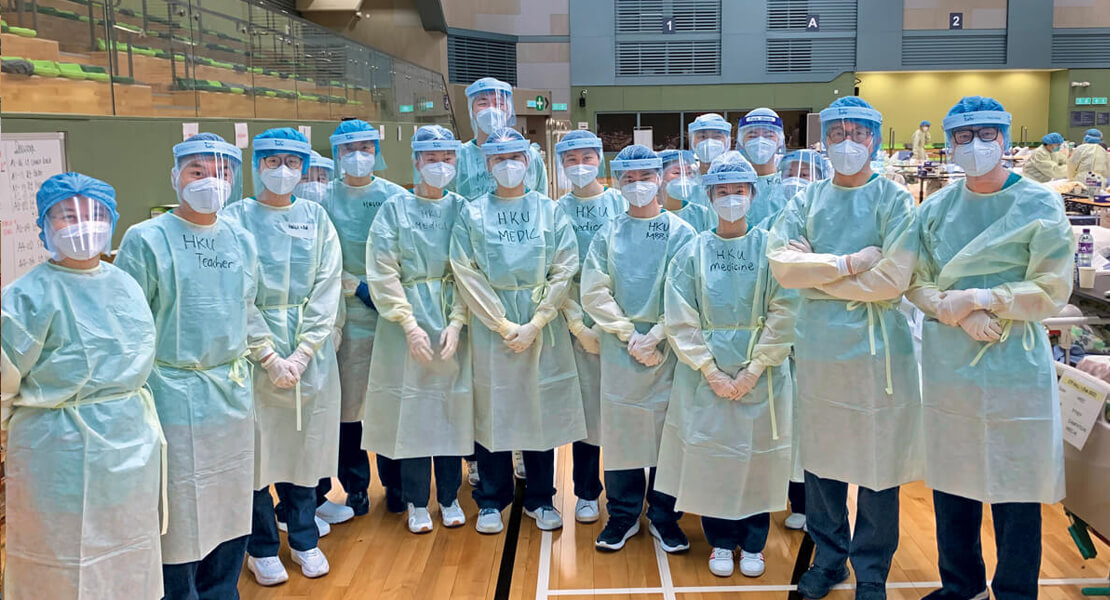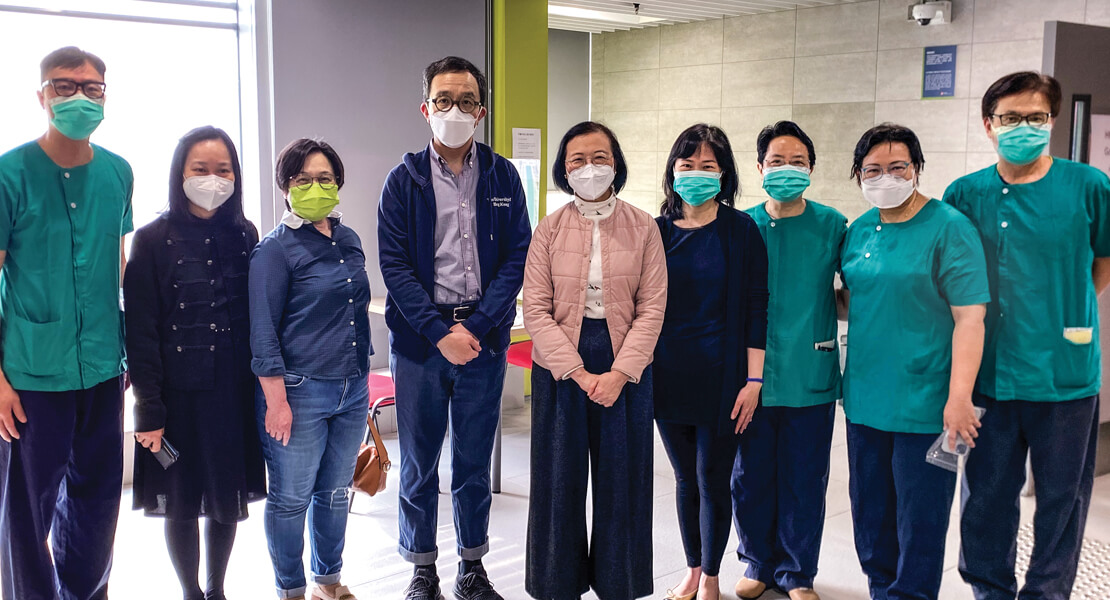
Clinical Excellence
Rising to the COVID-19 Challenge
Ms Chan Yuk-sim |Honorary Associate Professor, School of Nursing, The University of Hong Kong | General Manager (Nursing), The University of Hong Kong-Shenzhen Hospital
The School of Nursing provided urgent hands-on and strategic services at Community Isolation Facilities (CIF) during the fifth wave of the COVID-19 pandemic, which not only helped to greatly reduce pressure on hospitals but created a learning opportunity for senior students who otherwise were unable to do practicums during the outbreak.
The first CIF, Choi Wing Road Sports Centre CIF, opened in haste on February 20, 2022, to meet urgent demand for frail elderly COVID-19 patients who were in stable condition with mild symptoms or under recovery, but not yet able to return to their homes or residential care premises. HKUMed was asked to provide medical care management and Faculty devised a care model that aimed to alleviate pressure on public hospitals, especially accident and emergency (A&E) departments.
Ms Chan Yuk-sim, Honorary Associate Professor of HKU School of Nursing and General Manager (Nursing) at the HKU-Shenzhen Hospital, was tasked with getting nursing services at the site up and running as quickly as possible.
“The centre was established within a day and in less than 48 hours, HKUMed was brought in to provide medical care. From the get-go, we had to act swiftly,” she said.
All 150 beds were occupied when the School’s team arrived and they were astonished to find there were no partitions between beds and only the barest of provisions.
“Setting up a healthcare facility in a sports facility is a challenge,” she said. “In the beginning, many of the patients showed symptoms of shortness of breath but there was no oxygen available on site. Without oxygen, we couldn’t help the patients, so we immediately organised cylinder oxygen to be delivered to the centre. We also contacted suppliers to provide 10 electronic oxygenators.”
“Our concern was that if patients’ oxygen level was low, the only option would be to transfer them back to A&E via ambulance and that would have been a vicious cycle. Getting oxygen to the CIF helped to overcome this problem significantly.”
Other resources were also limited. For instance, the team had to arrange for bed pans and urinals to be brought in and find a way to disinfect them.
Amidst all of that, the team was also concerned about their commitment to educate nursing students, particularly senior-year students who were unable to do practicums due to the pandemic. The School arranged for students to help at the CIF and asked the Nursing Council of Hong Kong to fast-track recognition of these clinical hours. Recognition was soon accorded in three categories – medical care, geriatric care and community care.
Student involvement also benefited patients because they brought in useful ideas, Ms Chan said. “There was no water for face washing or teeth brushing at the centre so the students suggested wet wipes be provided, since personal hygiene is a basic need and part of humane care. Our NGO partner there, Po Leung Kuk, was very supportive and immediately arranged for many wet wipes to be delivered,” she said.
The School’s model at the Choi Wing Road Sports Centre CIF became a template for other CIFs that opened during the pandemic. These CIF’s also involved other NGOs and nursing schools, whose senior students also benefited from our outreach to the Nursing Council.
“Where there is challenge, there is also opportunity,” Ms Chan said. “Nursing is not only about hands-on service and our students were able to see this. We co-ordinate and manage care on a large scale, which was a big challenge, and provide the best care with limited resources. Fortunately, we were able to see positive outcomes, as patients’ conditions improved and they were discharged. I believe our students have also learned a lot through this experience.”






